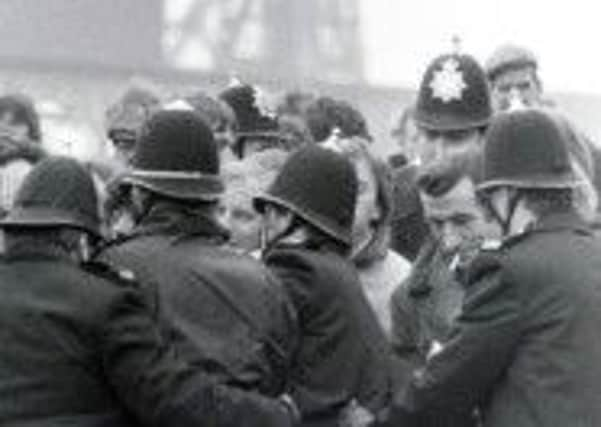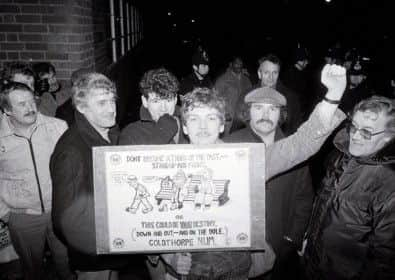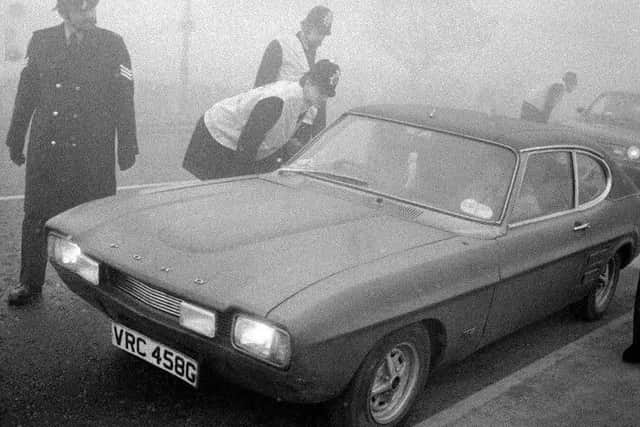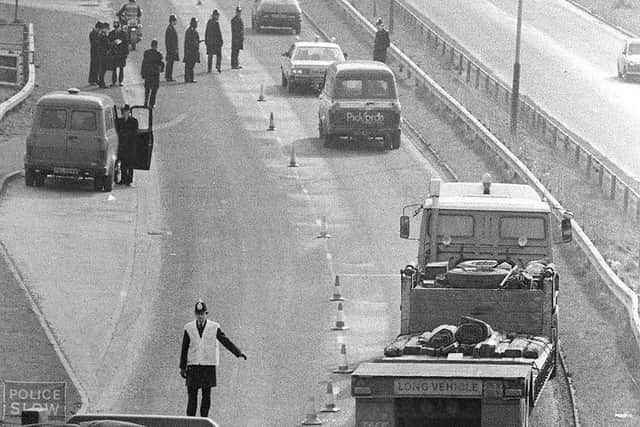Mansfield and Ashfield: More reaction to new miners’ strike papers


On Friday, newly-released cabinet papers from the Conservative government who were in power have revealed new information that local unions say they have always suspected but never been able to prove.
Indeed, Alan Spencer, general secretary of the Mansfield-based Nottinghamshire area branch of the National Union of Mineworkers, believes the revelations may have changed the course of the miner’s strike had it been made public at the time.
Advertisement
Hide AdAdvertisement
Hide AdThe government and National Coal Board said back then they wanted to close 20 pits, but previously confidential files released by the National Archives reveal a plan to shut 75 mines over three years.


The strike started in March 1984 and lasted a year, with sometimes violent confrontation between police and pickets.
“The papers show what we said was happening all along and if the public had got to know of these facts at the time then I think we would have had a bit more public support which might have saved some pits,” said Mr Spencer. “The strike was never about money, it was about saving jobs and this proves exactly that.”
“It is going to take some time for everything to come out, probably a few more years, but the truth is starting to emerge which proves us right and is what we’ve been fighting for for many years.”
Advertisement
Hide AdAdvertisement
Hide AdThe relevant document records a meeting attended by just seven people, including then Prime Minister Margaret Thatcher.


The meeting was told the National Coal Board’s pit closure programme had “gone better this year than planned: there had been one pit closed every three weeks” and the workforce had shrunk by 10 per cent.
The paper then refers to the board’s new chairman Ian MacGregor’s intentions.
“Mr MacGregor had it in mind over the three years 1983-85 that a further 75 pits would be closed... There should be no closure list, but a pit-by-pit procedure.”
Advertisement
Hide AdAdvertisement
Hide Ad“The manpower at the end of that time in the industry would be down to 138,000 from its current level of 202,000.”


The final paragraph of the document read: “It was agreed that no record of this meeting should be circulated,” while the paper was marked “Not to be photocopied or circulated outside the private office.”
Papers have also revealed that the government considered calling a state of emergency and getting troops to move coal.
The union is planning a commemorative event in Kirkby to mark the anniversary of the start of the strike. Former miners and their supporters will gather at the town’s Festival Hall on 12th April to hear guest speakers.
Advertisement
Hide AdAdvertisement
Hide AdMr Spencer said before the strike there were 36 pits in Nottinghamshire with a workforce of around 36,000. Today only one mine - Thorseby - remains in operation with around 700 staff.
He said: “You’ve only go to look around to see what has happened to the area since 1984, it’s not just the mines that have closed, it’s textile factories and other industries, the area has been decimated.”
Eric Eaton, who worked at Newstead Colliery during the strike, and is now chairman of the Nottinghamshire National Union of Democratic Mineworkers Ex and Retired Miners’ Association, is not surprised by the details released.
He insists the government planned the strike and stockpiled coal in readiness for it, which left the miners “destitute and leading a hand-to-mouth existence.”
Advertisement
Hide AdAdvertisement
Hide AdThe Union of Democratic Mineworkers was formed in 1985 by Nottinghamshire and Derbyshire miners after a split with the NUM during the strike.
Mr Eaton added: “Arthur Scargill had his informants, so we knew what was being planned all along, the only surprise was that he slightly underestimated the number of pits they were looking to close, saying 70 not 75.
“Basically the only conclusion that you can draw is that they were all lying. They lied to the media, in parliament and Ian MacGregor lied on national television when he was asked point blank if they were going to close 70 pits and he said ‘no’.
“We are talking now about putting in for compensation for the years’ wages that we lost as a result because it was terrible to live through.
Advertisement
Hide AdAdvertisement
Hide Ad“There was no money coming in and there was no coal to heat the houses, so we were reliant on handouts from people and money from the people who were supporting us.”
The Miners’ Strike had a major impact on those who weren’t directly involved too.
Geoff Alcock emigrated to the United States that year and the stand-off had a dire bearing his financial situation because of the adverse effect on exchange rates.
“The strike cost me half of my life’s savings and resulted in years of hard work and scrimping and scraping to get back to normal,” he said. “The pound to dropped to a measly $1.05 when prior to that we had been used to $2 for every pound we converted.
Advertisement
Hide AdAdvertisement
Hide Ad“By the time my home in Littleover, Derby, sold some 10 months after emigrating the pound had lost half of its value and my life savings were all invested in that property.
“Instead of having the money to start my life in Arizona, I was almost broke and my outgoings were more than my income even though I had been brought from England to head a program to build a new gas turbine engine.
“In fact, it took 10 years to recover to the point where I had a little spare cash to spend each week and my outstanding debts were paid down to a manageable level.
“As for the strike itself, I have no hard feelings. I have never been a big supporter of unions, and I wonder who really won when the chips were counted, but people have to do what people have to do.”
What are your memories of the Miners’ Strike? The Chad wants to hear from you. Email [email protected] or visit our Facebook page www.facebook.com/mansfieldchad